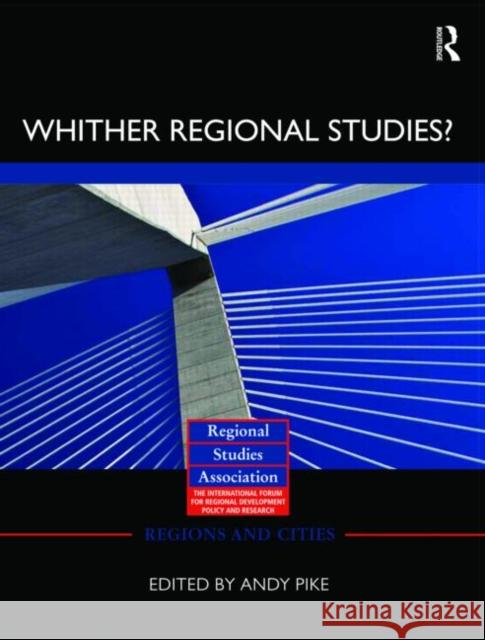'Whither regional studies?' » książka
'Whither regional studies?'
ISBN-13: 9780415478755 / Angielski / Twarda / 2009 / 136 str.
'Whither regional studies?'
ISBN-13: 9780415478755 / Angielski / Twarda / 2009 / 136 str.
(netto: 721,53 VAT: 5%)
Najniższa cena z 30 dni: 654,86
ok. 16-18 dni roboczych.
Darmowa dostawa!
The conceptual and analytical focus provided by the ‘region’ is in question because of relational and multi-scalar approaches, new methodologies and techniques and new modes and geographies of governance, policy and politics. This book provides a guide to contemporary debates and showcases contributions from the leading voices reflecting upon the current issues and debates.
Regional studies are at a vibrant conjuncture. ‘Regions’ continue to provide a conceptual and analytical focus for often overlapping concerns with economic, social, political, cultural and ecological change. In the context of increased interest in inter- and multi-disciplinary approaches, ‘regions’ remain an arena in which synthesis across disciplines – economics, geography, planning, politics and sociology – can take place. Yet recent work has raised fundamental questions about how we think about and research ‘regions’ and regional change, ‘development’, governance and regulation. First, emergent conceptual ideas have introduced new thinking about space, place and scale that interprets ‘regions’ as ‘unbounded’, relational spaces. This work has disturbed notions of ‘regions’ as bounded territories and questioned hierarchical systems of scale through more complex, multi-scalar approaches. Second, research methodology has grown in sophistication and sensitivity but remains somewhat polarised between the binaries of positivist, often quantitative, and more theoretically diverse, typically qualitative, approaches. Last, regional governance, policy and politics are wrestling with the conceptual, methodological and political complexities of new modes and geographies of governance and emergent multi-agent and multi-level institutional architectures. This book brings together important voices in regional studies to contribute to and reflect upon these current issues and debates. While we are at an early stage in beginning to think through what such conceptual, theoretical, methodological, governance, policy and political innovations and developments mean for regional studies, the magnitude and resonance of such issues underpin the vitality of research on the region.
This book was published as a special issue of Regional Studies.











